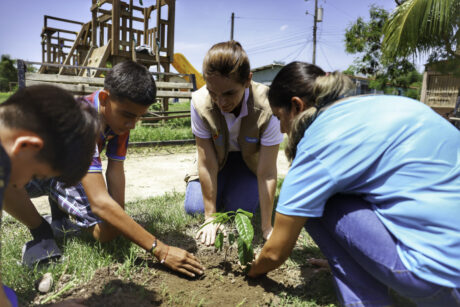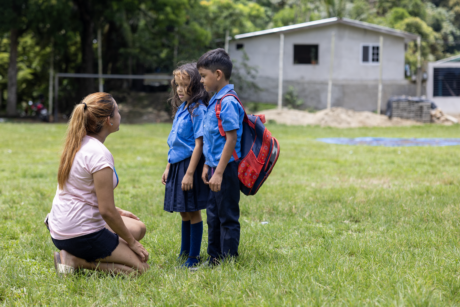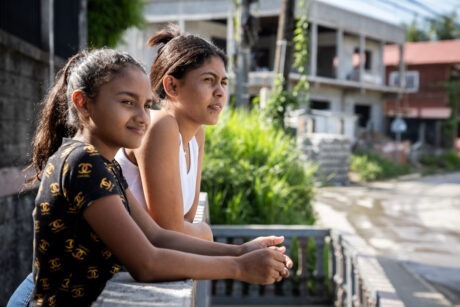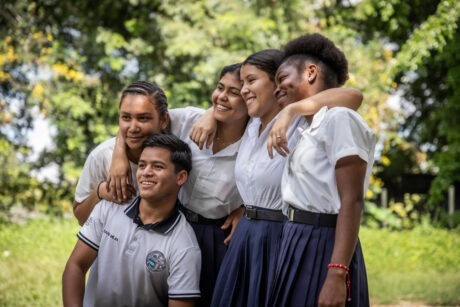Democracy Day is a time to reflect on both the benefits and the challenges to the institutions that ensure such freedoms. A plethora of organizations have indices that chart openness, fairness and other democratic values, and these measurements are must-haves as societies determine the steps to improve their situation.
Creative has extensive experience implementing programs that strengthen the pillars of democracy and the institutions that support them. Em Honduras, por exemplo, os cinco anos, USAID-supported Sembrando Esperanza program has three basic objectives: Building social cohesion; improving local service delivery; and providing a base of evidence to create strong public policies and advocacy.
Creative spoke with three field staff members working on Sembrando Esperanza about how their program supports the ideals of democracy in Honduras. The following is a selection of their edited answers.
How is Sembrando Esperanza engaging local actors to strengthen democratic norms, values and institutions?
Robyn Braverman, Chefe do Partido: We have to engage both local actors and national actors to achieve our objectives, and we’re doing that by providing evidence. Por exemplo, we have a survey about children and youth perceptions around migration, violence and victimization that has been used to inform local activities and programs. We’re now using work from one of our consortium members, Asociación para una Sociedad más Justa (ASJ), to look at how we’re strengthening mechanisms to prevent violence and migration at the municipal level. E finalmente, we’re disseminating this information and engaging and creating new relationships and new styles of working.
Lesbia Alvarado, Monitoramento, Evaluation and Learning Specialist: We are conducting municipal-level diagnostics through our partners and identifying areas for improvement and alliances so institutions can provide prevention and general community services, which in itself is a democratic strengthening of making institutions work for their citizens and respond to citizen needs. One of the influences we have been able to perceive is the instability of the government. This is a constant challenge in all our project interventions.
What are the challenges to this work?
Marcelo Villalvir, Director of Migration: One of the major challenges as we implement this program is the weakening of social cohesion that is a result of the high levels of violence in the communities where we are working. Organized crime and the high levels of violence it brings are undermining community cohesion as residents resist participating in community activities out of fear. Their lack of participation does not foster a culture of democracy and citizen engagement. Another aspect that affects the issue of democracy is the high level of corruption that have permeated the public institutions of the country and the democratic system. How to restore hope to the citizens is a big challenge. We must empower them so that the strengthened democratic system in the country brings about changes, truth and improvements in the living conditions of its population.
Where have you seen progress in strengthening the engagement and resilience of communities to participate and partner with government? What are you learning about building trust between communities and government officials?
Robyn Braverman, Chefe do Partido: It takes a lot of handholding. Sometimes it takes a lot of shifts in how we see ourselves, the role we play and the power paradigm. We are shifting. E, as much as we want results right away, it takes time because building trust takes time. Por exemplo, if you haven’t liked your neighbor and you haven’t trusted your mayor, but suddenly you’re asked to do so, it’s logical that it will take time to trust them. Especially in our case with the police, that’s going to take a lot of time. Então, I think it’s giving ourselves the patience and grace to learn from what we’ve done and to make it better based on new evidence and to remain flexible.
Lesbia Alvarado, Monitoramento, Evaluation and Learning Specialist: Felizmente, in the first year, we signed agreements with eight municipalities. That is a significant advancement. Trust-building activities have also been carried out at the community level, involving leaders and community members and Sembrando Esperanza. It is creating those community bonds that we know will turn into resilience over these five years.



